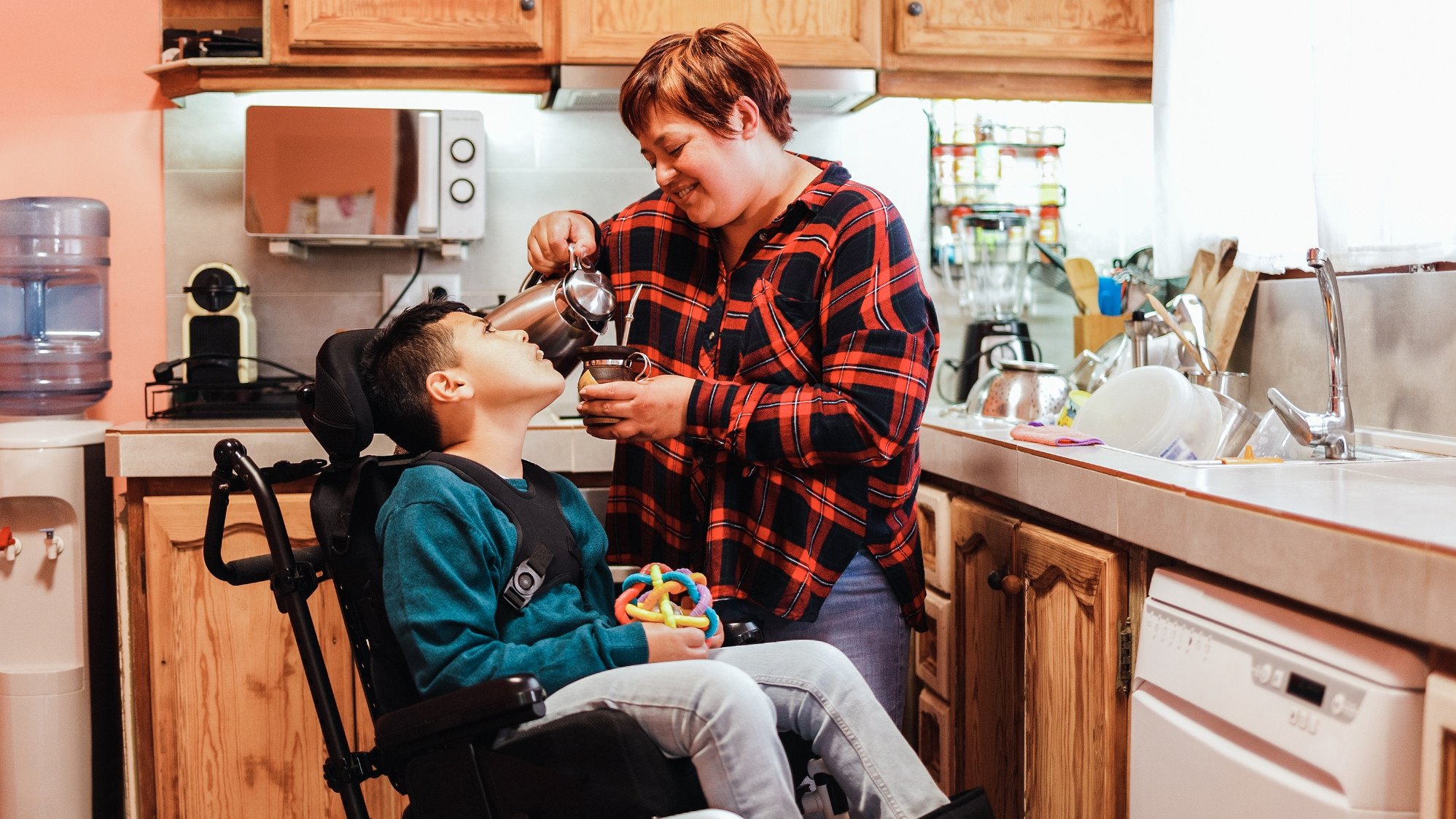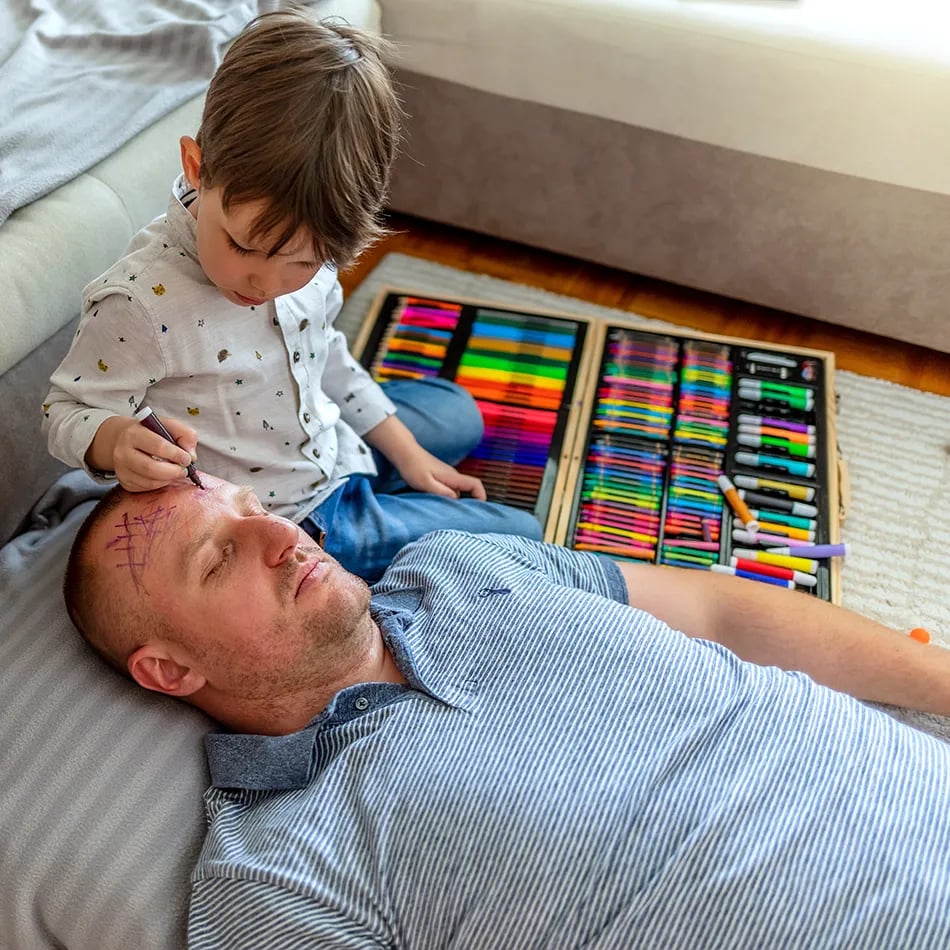Frequently asked questions
There is so much to take in as you explore the possibility of becoming a foster carer. To help you on your journey, we’ve answered some of the most frequently asked questions:
Why are children taken into care?
What are the different types of fostering?
How much do foster carers get paid?
What can prevent you from becoming a foster carer?
How long does it take to become a foster carer?
Do you need specific qualifications to foster?
Do you need a spare room to foster?
Can you move house while fostering?
Can you work and foster?
Do foster carers pay tax?
What benefits can foster carers claim?
Can you foster if you have a long-term health condition?
Can you foster if you have pets?
What’s the difference between fostering and adoption?
Who is behind the Fostering Unfiltered campaign?
Why are children taken into care?
Children come into care for many different reasons. Sometimes it is because of a parent’s short-term illness or a temporary problem within the family. Some have experienced domestic violence or witnessed drug and alcohol misuse. Others have been abused or neglected. For many children and young people fostering is often their first positive experience of family life.
What are the different types of fostering?
Each child is unique and the circumstances under which children come into care vary tremendously. This is why it is important to have a range of foster carers with different skills and experiences, committed to supporting children and young people.
There are different types of fostering that foster carers can choose to specialise in, so you can explore which type would work best for you and your family. However, experienced foster carers will be aware that the different types of fostering have much in common and families often find that their commitment extends across a range of foster care ‘types’.
For example, a ‘short-term’ foster care arrangement can take many months to resolve, by which time the child and foster family are settled and keen for the arrangement to become ‘long-term.’
You may find that your local council fostering service has slightly different names for some types of foster care. Read more about the different types of fostering here.
How much do foster carers get paid?
Foster carers receive a weekly fostering allowance to cover the costs of looking after a child, such as clothing, food and pocket money. Each fostering service sets its own allowance levels, and the amount varies depending on the age of the child. Some fostering services also pay their foster carers a fee on top of the allowance, in recognition of their time, skills and experience. Sometimes the allowance and fee are combined into a single payment.
You can find out more about foster care allowances and pay here.
What can prevent me from becoming a foster carer?
As a minimum, you need to have space in your home for a child to live comfortably. You also have to provide a smoke-free environment for children, so smokers will be encouraged to quit during the assessment process.
A police record will not necessarily stop you from becoming a foster carer. The law states that the only criminal convictions that prevent people from fostering are those that relate to an offence against children or a sexual offence. You will need to disclose any criminal convictions when you apply to foster.
If you have a long-term health condition, this will be taken into account during your assessment. The most important factor is whether you are physically and psychologically fit enough to cope with the demands of caring for a child.
More details about who can foster can be found here.
How long does it take to become a foster carer?
It can take between four and six months from your initial inquiry to being approved by the foster panel. This includes home visits, the application and assessment and introductory training. The fostering service should respond promptly to your enquiry but do follow up if you feel things are being delayed. It is good practice for when you are advocating for your foster child and need to make your voice heard!
Do you need specific qualifications to foster?
No. When you are preparing to foster you will receive training to help you and your family identify and build upon the skills you already have, and develop new skills needed to foster, starting with the Skills to Foster course.
Read more about training and support for foster carers here.
Do you need a spare room to foster?
Yes. Most fostering services require you to have a spare bedroom, to ensure the child you foster has the privacy and space they require. The exception is babies who can usually share a foster carer’s bedroom up to a certain age (usually around 12-18 months).
If you are short of space, you could consider short break care, which covers a variety of different types of part-time care. You could have a child to stay for a few hours or a day each week, to support the child and their own family or their full-time foster carers.
Can you move house while fostering?
Yes, foster carers can move house, just like any other family. In fact, some foster carers move to a home that is better suited to the changing needs of their foster children; for example, to be able to provide a bigger bedroom for their teenage years or a bigger garden. Your choice of home will need to be approved by your fostering provider, who will want to be reassured that the move is taking place in a way that does not adversely affect the stability of the arrangement.
Can you work and foster?
Foster carers are expected to be available to care for children, attend meetings, training, support groups, and to promote and support contact between a child and their family.
Fostering providers have different policies around work, but generally will allow part-time work (and even full-time work), provided foster carers can demonstrate that they can also fulfil their fostering commitments. There are also many foster carers who run their own businesses, which gives greater control and flexibility over their working arrangements.
Some children and young people will need a level of care and support which means that holding down a job will be difficult. But there also will be fostering arrangements when it is possible to work. Some young people will benefit from being in a household where adults have careers, helping them to understand the opportunities that could be open to them through study and training.
Why not read about the experiences of real life foster carers, and how they balance work and fostering?
Do foster carers pay tax?
Foster carers are treated as self-employed for tax purposes but the vast majority of foster carers do not pay tax from their fostering. There is a generous tax scheme foster carers can use called Qualifying Care Relief. This calculates a tax threshold unique to the fostering household which, when compared with their total fostering payments for the same tax year, determines if a foster carer has to pay any tax from their fostering.
When a foster carer registers as self-employed they also have to make provisions for Class 2 National Insurance Contributions although they may be entitled to an exemption depending on their earnings.
We spoke to foster carers in Greater Manchester about how they manage their fostering finances.
What benefits can foster carers claim?
You are likely to be able to continue to claim benefits while fostering. All fostering payments are disregarded as income for the purposes of Universal Credit. UC also allows a period of eight weeks between placements where the foster carer will not be subject to any work-search requirements. Foster carers are allowed one bedroom which will not be regarded as under-occupied as per the under-occupancy rules (also known as the ‘bedroom tax’) if claiming housing benefit or a Universal Credit housing element when living in social or privately rented accommodation.
Can you foster if you have a long-term health condition?
A long-term health condition will not necessarily stop you from fostering. Many foster carers manage health conditions, such as diabetes or asthma, which do not impact on their ability to care for children. Your overall health will form part of your initial assessment. Your fostering service will want to be assured that you are physically and psychologically fit enough to cope with the demands of caring for a child or young person.
Foster carers may suffer from ill-health just like a parent or grandparent. During a long-term fostering arrangement, which may last several years, it is possible that a family member may suffer from ill-health or need treatment. In this situation, the fostering service will work with the foster family to manage this difficult situation and put in place additional support if this will help the young person to remain in the family home.
Can you foster if you have pets?
Yes, pets can be an asset to a foster family. Under some circumstances a pet can help a child suffering trauma to feel more settled and comforted. But every animal is different and their behaviour and temperament will have to be assessed when you apply to foster. They will also be considered before new children arrive at your home.
What’s the difference between fostering and adoption?
Fostering is not the same as adoption although they do have some things in common. Both involve welcoming a vulnerable child or young person into your home and caring for them as if they are your own children.
The main difference is that fostering is often temporary, lasting anywhere between a few days to several years, while adoption is typically permanent.
With fostering, parental responsibility is usually held by the local authority. The child may continue to have some contact with their birth family. In fact, many fostered children return to their own families when it is safe to do so.
Adoption is a way of providing a new family for children who cannot be brought up by their own parents. It's a legal procedure in which all the parental responsibility is transferred to the adopters. Once an adoption order has been granted it can't be reversed except in extremely rare circumstances. An adopted child loses all legal ties with their first mother and father and becomes a full member of the new family, usually taking the family's name.
Who is behind the Fostering Unfiltered campaign?
Fostering Unfiltered is a campaign to drive foster carer recruitment across all 10 local authorities in Greater Manchester led by Greater Manchester Combined Authority. The idea behind Fostering Unfiltered is to help people in Greater Manchester who are curious about fostering to fully explore and consider the role by sharing the true-life experiences of a growing community of 1,427 local council foster carers and the teams around them.
You can read more about it here.
Jump to section






